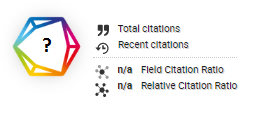Dashboard Design to Monitor the Number of Students of the Faculty of Information Technology, Tarumanagara University
DOI:
https://doi.org/10.46984/sebatik.v28i2.1942Keywords:
Dashboard, Visualization, Monitoring, SDLC, WaterfallAbstract
Students in a study program within the faculty are important stakeholders in higher education. The continuity and efficiency of teaching and learning activities depend significantly on the number of students in a study program. The Faculty of Information Technology at Tarumanagara University currently offers two study programs: Informatics Engineering and Information Systems. While Tarumanagara University already has a system for managing student data, it requires further development to remain competitive with other universities, particularly those offering information technology programs. The existing system provides only basic information, such as whether the number of students this year has increased or decreased compared to the previous year. However, it lacks the ability to deliver a comprehensive overview of student data. To address this limitation, a monitoring system is needed to provide more accurate and systematic information. This system will be visualized in the form of a dashboard, offering insights into trends such as the number of students, their school origins, gender distribution, and address/region of origin. The dashboard design is based on the waterfall model of the software development life cycle (SDLC) and is developed using Power BI Desktop.
References
Bagiarta, I. G. N. N., & Wardana, I. G. N. (2017). Visualisasi Dashboard Penerimaan Mahasiswa Baru di STIKOM Bali. E-Proceedings KNS&I STIKOM Bali, 401-406.
Heroza, R. I., & Meida, A. (2017). Pemodelan Kebutuhan Sistem Dashboard Sebagai Indikator Kinerja Fakultas. KNTIA, 4.
Irvan, O., Beng, J. T., & Trisnawarman, D. (2020). Dashboard Pengukuran Kinerja Program Studi Perguruan Tinggi. Jurnal Ilmu Komputer dan Sistem Informasi, 8(1), 126-132.
Murad, D. F., Laily, R., & Yosaputra, M. (2021). Smart Dashboard Multimedia pada Sistem Informasi Akademik. JOINS (Journal of Information System), 6(1), 106-115.
Rasmussen, N., Chen, C. Y., & Bansal, M. (2010). Business Dashboard (Mengendalikan Bisnis Melalui Layar Monitor). PPM: Jakarta Pusat.
Reddy, G. S. (2021). A Review of Data Warehouses Multidimensional Model and Data Mining. Information Technology in Industry, 9(3), 310-320.
Wexler, S., Shaffer, J., & Cotgreave, A. (2017). The big book of dashboards: visualizing your data using real-world business scenarios. John Wiley & Sons.
Yohanna, M., & Rumapea, Y. Y. P. (2020). Rancang Bangun Dashboard Dalam Memonitoring Jumlah Mahasiswa Baru. CESS (Journal of Computer Engineering, System and Science), 5(1), 57-64.
Yumarlin, M. Z., Bororing, J. E., Rahayu, S., & Ramadhani, T. A. (2022). Aplikasi Dashboard Visualisasi Data Calon Mahasiswa Baru mengunakan Metabase. Edumatic: Jurnal Pendidikan Informatika, 6(1), 116-125.
Maulachela, A. B., Abdurahim, A., Qudsi, J., & Tajuddin, M. (2021). Performance Dashboard Sebagai Visualisasi Evaluasi Diri Perguruan Tinggi Menggunakan Pendekatan User-Centric. JTIM: Jurnal Teknologi Informasi Dan Multimedia, 3(3), 144-151.
Ropianto, M. (2017). Pemanfaatan sistem dashboard pada data akademik di sekolah tinggi teknik (stt) ibnu sina batam. Jurnal Teknik Ibnu Sina (JT-IBSI), 2(2).
Bororing, J. E., & Pasadi, A. (2022). Implementasi Microsoft Power Bi Untuk Dashboard Visualisasi Data Akademik Mahasiswa Fakultas Teknik Universitas Janabadra. Informasi Interaktif, 7(2), 149-155.
Rolansa, F. (2021). Pengembangan interaktif dashboard kemahasiswaan di program studi teknik informatika dengan teknologi big data. Jurnal Pendidikan Informatika dan Sains, 10(2), 110-118.
Mirwansyah, D., & Sari, N. W. W. (2019, May). Penerapan Business Intelligence Pada Data Lulusan STMIK Sentra Pendidikan Bisnis Samarinda. In Prosiding Seminar Nasional Matematika dan Statistika (pp. 192-198).
Downloads
Published
How to Cite
Issue
Section
License
Copyright (c) 2024 Tony, Teny Handhayani, Afina Putri Dayanti

This work is licensed under a Creative Commons Attribution 4.0 International License.
Authors retain all their rights to the published works, such as (but not limited to) the following rights; Copyright and other proprietary rights relating to the article, such as patent rights, The right to use the substance of the article in own future works, including lectures and books, The right to reproduce the article for own purposes, The right to self-archive the article








